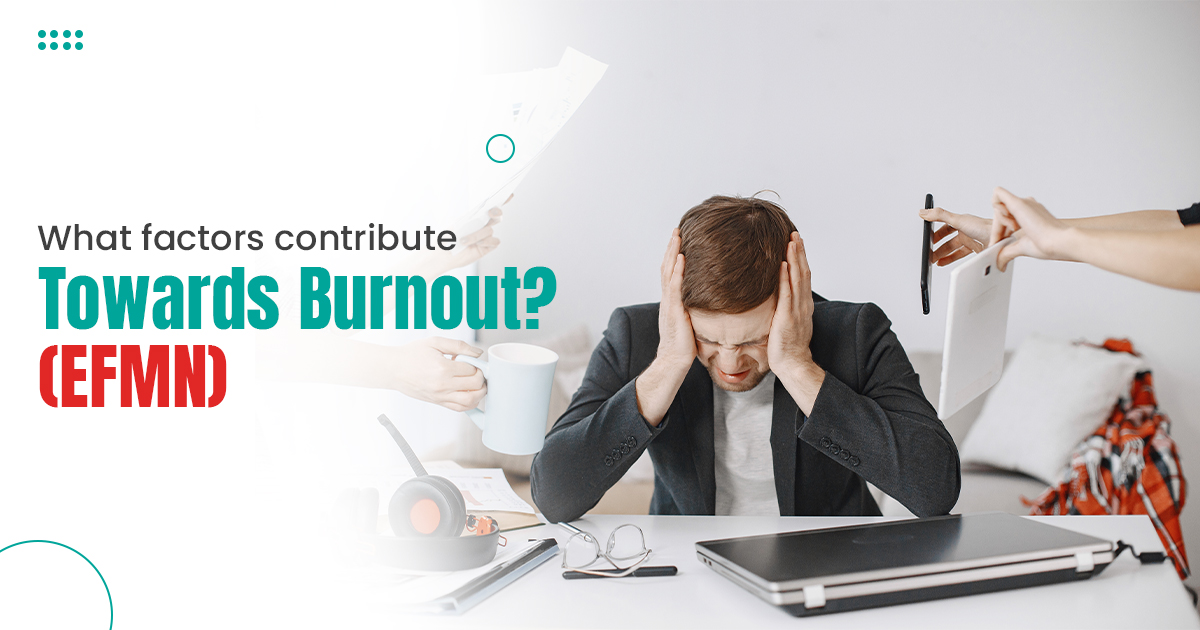
Impact of Burnout on Enthusiasm, Fatigue, Motivation and Negativity
Our eagerness for our work fuels the intense attachment to it. We work extra hard, even staying late to meet deadlines, exceed expectations and solve the challenges at work. But sometimes, these problems are too big to handle independently, and we need help to solve those issues. Resources are necessary to assist us and the lack of desire to ask for help leads to Burnout. It drains every last bit of vitality from you by using your enthusiasm and energy.
Do you know how to handle this? To help with this, consider the following:
- Be cautiously excited while keeping proper bounds for your task. Only work as long as you would have liked to or would have liked to before beginning this employment.
- Maintain your other interests and pastimes. Sometimes, when we get passionate about something, we give it our all, ignoring other things that help us stay balanced.
- Retain your individuality in the firm instead of viewing your employer as an extension of yourself. You are so much more than your work, and maintaining boundaries with your employer is essential to preventing burnout.
Impact of Burnout on Enthusiasm, Fatigue, Motivation and Negativity
The following are a few impacts of Burnout on Enthusiasm, Fatigue, Motivation and Negativity:
Enthusiasm
Work can be stressful, especially when there's a tight deadline to meet. Futhermore, one of the biggest causes of burnout is working too much without taking breaks. Burnout, often characterized by chronic stress, emotional and physical exhaustion, impacts the general well-being of the individual. It diminishes the enthusiasm, excitement and energy needed for meaningful engagement for work, hobbies and life in general.Fatigue
Burnout, which is a condition of extreme mental and physical tiredness brought on by a depletion of emotional and physical energy resources, caused by long-term working pressures. One of the symptoms of burnout brought on by a persistent sense of overload is fatigue. It occurs when we endure excessive emotional, bodily, and mental exhaustion over time. Burnout, although, is frequently linked to one's place of work, it can also impact your health and other aspects of your life.Physical exhaustion or fatigue is also a result of heavy workloads during working hours and ignorance of workplace laws that can eventually lead to job burnout.
Motivation
Motivation tends to vanish as the sense of burnout intensifies. Burnout and motivation are directly linked with one another, with motivation being a significant factor in mitigating the impact of burnout. Highly motivated employees are less likely to burn out and are more productive, successful, and satisfied at their jobs. As stress mounts, you start to lose the motivation, interest and drive that first prompted you to accept a particular role.Negativity
Negativity is increased during burnout. Cynicism, apathy, and impatience are just a few ways negativity can show itself. Burnout may be indicated if you observe that your employees are becoming increasingly dissatisfied with their jobs. In many firms, workplace negativity can pose a severe threat. It may result in low output, significant employee turnover, and a hostile workplace environment. Stress and anxiety can be brought on by negative attitudes and actions that also have an impact on employee morale and mental health.Workers who experience burnout may have physical symptoms, emotional outbursts, mental distress, and decreased productivity. They may also quit pursuing other chances if they think a new position will better suit their needs or be less stressful.
These are the parameters to measure an individual's burnout level. If you feel that you are suffering from either, feel free to connect with our Resilience program and find tools that can help manage it better.